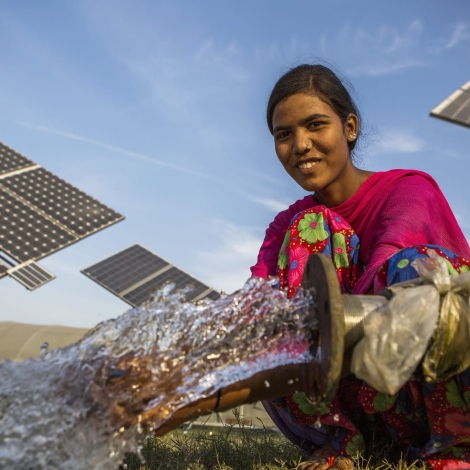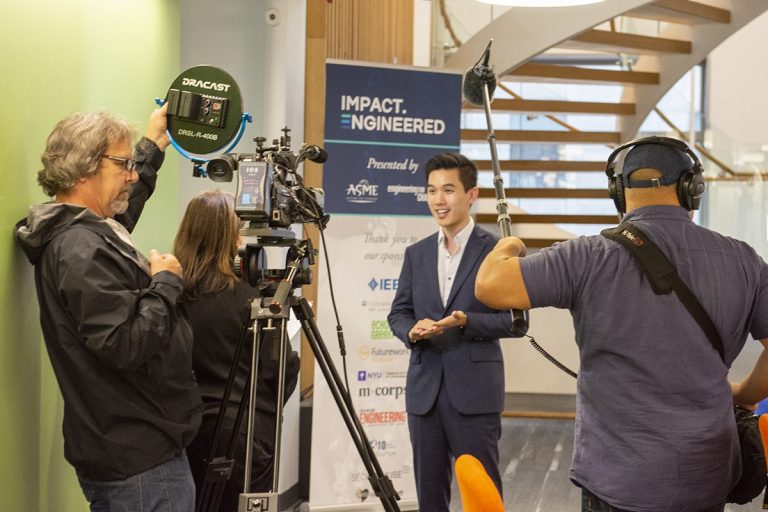Fifty years after the term “intermediate technology” came to describe a nascent category of engineering and design, the field is maturing. That may surprise even some practitioners, but today, thousands of technologies are manufactured and sold, dozens of institutions provide degree programs, the field has its own journals, and leading publications make room for research into technology for global development. Many of Engineering for Change’s members have had a hand in developing this sector.
The growth has a consequence, however. This emerging complexity can bewilder researchers working to improve the technologies that meet basic needs. Fortunately, it is possible to distill the thousands into 50 technologies that matter most now. A small team first attempted the feat as a research project at the Lawrence Berkeley National Lab in Berkeley, California, in 2014. It has since evolved into a comprehensive list of 50 game-changing technologies for good, spearheaded by the Institute for Transformative Technologies (ITT), independent of Berkeley Lab.
See E4C’s coverage of the 50 Breakthroughs: Let’s Solve the Big Problems and Support Bolder Technology Design for Global Development
The theory is that developing those 50 could have the greatest impact in underserved communities. Five years after initial publication, ITT has updated the list. The institute’s researchers have been analyzing the issues affecting low-income countries—health, food security and agriculture, education, human rights, gender equity, digital inclusion, access to energy, water security, and resilience to global change. Their study evaluates the role of technology in the context of policy reform, infrastructure development, technical capacity building, and business innovations. Those objectives overlap with many of the United Nations’ Sustainable Development Goals, and not without reason. ITT positions its work as the technology complement to the SDGs, the tangible aspect of the answer to the question of how to achieve those goals.
Introducing the updated list of 50 Breakthroughs
ITT’s work is supported by partnerships with the Lemelson Foundation and the Rockefeller Foundation, and by Engineering for Change. E4C is dedicated to advancing the 50 Breakthroughs’ relevance and mobilizing the engineering community to develop these technologies. We have been working alongside ITT to define the aligned academic research questions, map research efforts globally and catalyze the engineering community around this ambitious research agenda.
The new 50 Breakthroughs is a list of targets to guide research agendas and funding priorities. The results are publicly available as a living online database at 50breakthroughs.org.
Those technologies represent international agreement that they are the right areas on which to focus research and development. Now, what will it take to carry out that research?
To probe that question, ITT joined forces with E4C and the Global Knowledge Initiative to assemble a multidisciplinary convening hosted by AAAS in Washington, DC, in July 2019. The goal was to lay the foundation for the infrastructure required to mobilize the broader ecosystem of technology for development. Through a series of working sessions, a team of cross-functional, multi-sector actors collaborated to envision the resources necessary to bring these game-changing technologies to life. From researchers, to funders to private sector actors, representatives from the ecosystem explored the research questions and technical know-how, funding vehicles, and implementation approaches required to build and deploy these innovations.
Compare data on hundreds of essential technologies in E4C’s Solutions Library
“When we were approached about the opportunity to engage in the 50BT Convening, we were thrilled to be at the ground floor of defining and mobilizing a collective research agenda. It is vitally important to us to inform and direct our vast, global community towards challenges that will benefit from their skill sets and have significant impact on underserved communities,” E4C’s President Iana Aranda says. “Additionally, we’re committed to capturing the progress and lessons learned resulting from research and commercialization efforts to further advance the tech-for-dev sector by delivering that knowledge as a public good. We have a shared vision and are in lock-step with our collaborators at ITT and GKI, and look forward to working jointly on this vital initiative.”
E4C has been helping to answer the question of ‘how’ by supplying critical resources to the tech-for-dev community. For example, the E4C Solutions Library delivers the essential prior-art insight on hundreds of technologies that meet basic needs in underserved communities. Our goal is to serve as a source of reliable data to inform global research and development. Engineers and technologists can use the library as a first step, a place to discover what has been done, and what can be improved.
We have also invested in advancing the sector through research collaborations with industry, multilateral and non-profit organizations. The resulting investigations and field insights are freely available on our website at our Research Portal.
View E4C’s growing compendium of original research.
The 50 Breakthroughs are an exciting and necessary framework. The effort involved in its creation and ongoing maintenance is immense and necessary. And E4C is proud to be a part of it. Please use the published resources in your own work, and contribute to the realization of the 50 Breakthroughs with your correspondence with us and ITT. Find the material and contact information at 50breakthroughs.org.

